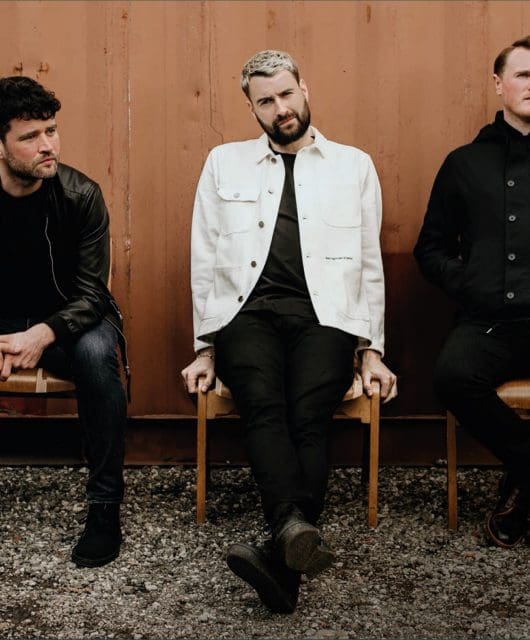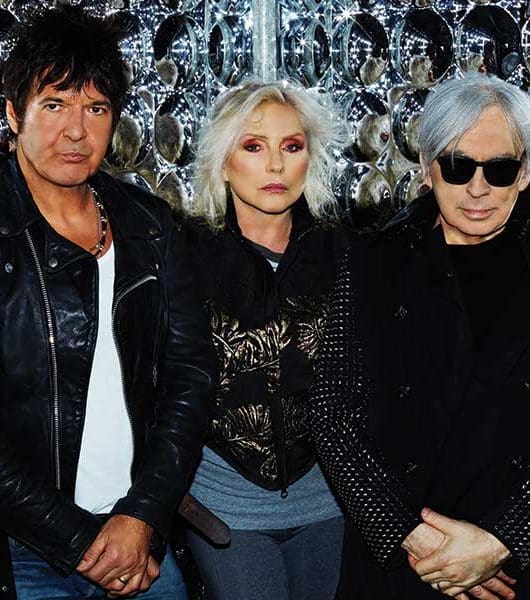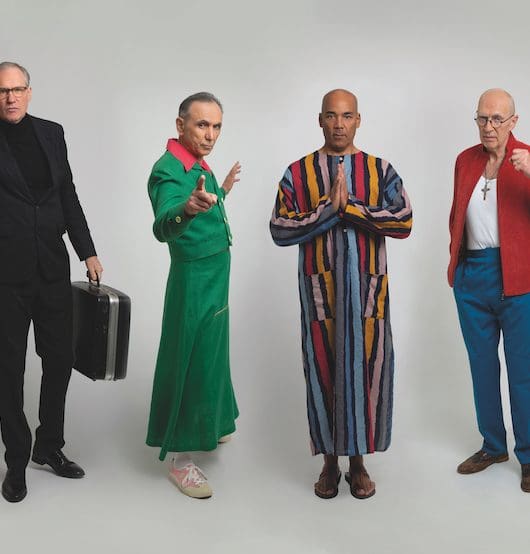Tina Weymouth and Chris Frantz interview: “CBGBs was a wonderful incubator for baby bands”
By John Earls | July 3, 2023
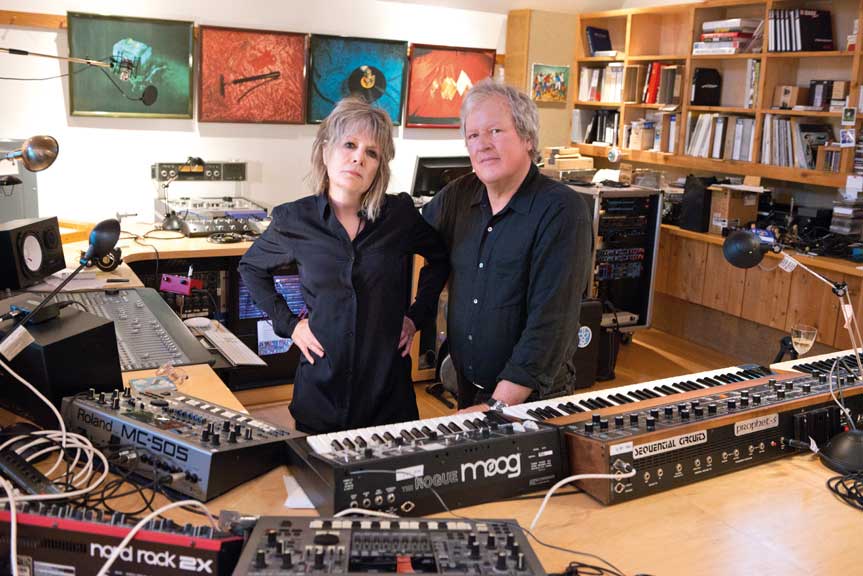 One of the great love stories in music, as well as one of its finest rhythm sections, Tina Weymouth and Chris Frantz are preparing to share their memories of life in Talking Heads and Tom Tom Club. It’s been an incredible adventure, as they reveal all about their days of sweating with Ramones, forsaking political pop and why it’s important to remind people of the joy of working with David Byrne.
One of the great love stories in music, as well as one of its finest rhythm sections, Tina Weymouth and Chris Frantz are preparing to share their memories of life in Talking Heads and Tom Tom Club. It’s been an incredible adventure, as they reveal all about their days of sweating with Ramones, forsaking political pop and why it’s important to remind people of the joy of working with David Byrne.
2023 marks the 50th anniversary of one of music’s great romances. Chris Frantz met Tina Weymouth in 1973 at Rhode Island School Of Design.
You’ll know already their plans to become artists got railroaded by Talking Heads and Tom Tom Club. What’s also obvious is that they’re both still madly in love.
Frantz’s 2020 memoir, Remain In Love, is a beautiful and touching extended paean to Weymouth. Over Zoom from their loft studio – a mishmash of instruments piled against the back wall, a single platinum disc on the shelves, the couple’s cat wandering in and out of shot – their devotion is evident.
Chris introduces himself, before going to fetch his wife. “Darling, we’ve got a British interview,” he tells Tina tenderly. Slightly flustered at being less than two minutes late, Tina is full of apologies.
If Talking Heads were the coolest band in New York, Chris and Tina are still the coolest and most welcoming couple in music.
The pair are talking because there’s a speaking tour of Britain to promote. Frantz was unable to plug Remain In Love in person because it was released during lockdown. “This tour makes up for not being able to go anywhere for my book,” he explains.
They also want to share what life was really like in Talking Heads. The 32 years since officially splitting in 1991 have seen snarky comments between David Byrne on one side and Tina, Chris and keyboardist Jerry Harrison on the other.
A three-song reunion performance when they were inducted into the Rock And Roll Hall Of Fame in 2002 is one aspect all four can agree on: that was horrible.
As Chris says: “I’d like our tour to convey that Talking Heads was an amazing time. It was very much a shared experience. It was all pretty happy until…”
Tina interjects: “…Until our last show.” The couple laugh, until Frantz grimaces at the memory of that final reunion. “Yeah. Talking Heads was great until our last show.”
They first began playing together in 1975, when Chris and David’s band, The Artistics, became Talking Heads. The drummer suggested his girlfriend try out as bassist, despite never having played the instrument.
“I didn’t necessarily want to be in a band,” laughs Weymouth. “Then I was, and I loved it. I’d been a musician before Talking Heads, touring at 13 with Mrs Tuft’s Handbell Ringers. I’d learned how to play flute and folk guitar from books – that would have been so much quicker now, from YouTube tutorials.”
Her blonde fringe makes Tina instantly familiar from the bassist who was so imperious in Talking Heads, but she reveals it was “daunting” to be one of the few female musicians in the New York scene that also spawned Blondie, Ramones, Patti Smith and Television.
“I thought the world of Debbie Harry for being able to front a band,” says Weymouth. “Debbie had an innate wisdom. I just don’t know how she did it. I also might have emulated Patti Smith, but she was very different from Debbie.
“I adored watching Patti onstage, but while Debbie was very much a team player, Patti was very diva-like. She was this grand poetess. That’s an art, too, but it was so different from what I wanted to emulate.”
A trio before Jerry joined following 1977’s debut single Love Goes To Building On Fire, Talking Heads got their break when they played three shows at scene club CBGBs’ festival in August 1975.
“Before we even performed at CBGBs, I knew it was going to be New York’s equivalent to The Cavern in Liverpool,” remembers Frantz. “You could really get it on musically there. At the same time, CBGBs was so small that, if you had a bad night, so few people could see you mess up that it wasn’t going to ruin your reputation. It was a wonderful incubator for baby bands.”
Influential arts mag The Village Voice put the unsigned Talking Heads on their cover after that 1975 festival. “Those shows were only our fourth to sixth performances ever,” smiles Chris. “We stood out from the crowd. First of all, a woman playing bass was a rarity.
“David was an unusual presence. And, at a time when rock stars either dressed like drag queens or cowboys, we wore polo shirts and Levi’s. And we had short hair.”
Talking Heads’ anti-image came at a price, as Tina explains: “Being on the Village Voice cover was a backhanded slap in some ways, as their headline was: ‘The conservative impulse of the new rock underground’, with the feature saying that we dressed like young Republicans.
“We all went: ‘Oh, God.’ When that happened, we decided we wouldn’t address politics at all.”
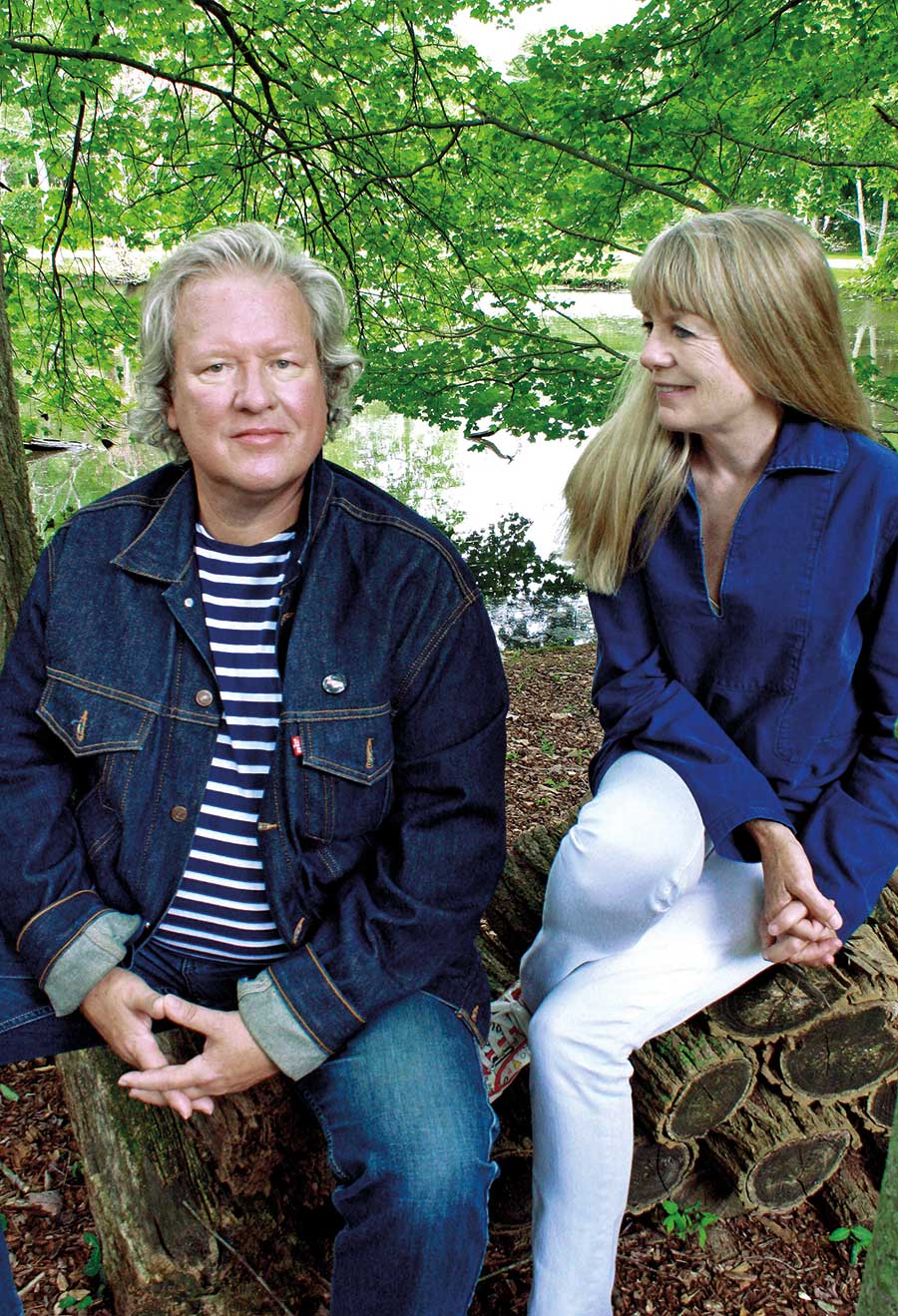
With their lyrics being predominantly esoteric, Talking Heads didn’t need to get political. Sire promptly snapped
them up, though Weymouth remembers having to tell legendary Sire boss Seymour Stein to slow down his plans. Talking Heads weren’t ready to release an album and tour so soon after that Village Voice cover.
“I’ll forever be thankful to David that we had a wonderful relationship through the chemistry of us writing together,” enthuses Weymouth. “I always had to be cautious with David, because he was like a cat: you couldn’t rub his fur the wrong way.
“I sometimes had to suppress my personality with him, but we had the same wonderful approach to music, and I wanted to delve into my role in the band.”
Despite her caution, Tina was no pushover, as she recalls: “I couldn’t be overly wilful with David, but I stood my ground. If he tried to make me play something I didn’t want to, I’d just go: ‘No!’ The songs could sometimes be dry, and I’d think: ‘We need something lush here.’ I’d be like the Pied Piper, saying to David: ‘Why not come over here? It’s really cool over here!’”
It took six months of constant practice, rehearsing every night, for Tina to feel at home in the band. “By then, I was playing bass in my sleep,” she says. “I was literally dreaming my playing. It was like there was a gestalt in my head.
“I’d still do weird things in my playing, trying to fit more notes than were possible into a song. I thought in strange tempos and was such a punk in how I tried to fit myself into a regular song structure.
“Those limitations would often lead to something interesting: Found A Job was basically from me saying: ‘What, really? We have to move onto the next part of the song already?’”
- Read more: Making Talking Heads: Remain In Light
Frantz similarly rhapsodises the band’s early days, saying his happiest tour was Talking Heads’ first ever extended run of shows, supporting Ramones in the UK. “To this day, the hottest gig of my entire life was Eric’s in Liverpool,” he laughs.
“We later played shows in the desert, but Jerry – who never perspired – was dripping and turning red after playing Eric’s. We were just the openers. The poor Ramones had to go on after, while steam was coming off our bodies upstairs. We had such a great time on that tour.”
Tina and Chris married in June 1977, three months before Talking Heads’ debut album 77 was released, featuring Psycho Killer. “Through any challenges, what I always had going for me was Chris,” smiles Weymouth.
“He wrote great drum parts and had a great drum tone. I could listen to Chris’ tone and work out what to play from there. Not all the CBGBs bands had great drummers.”
The first fissures in Talking Heads led to Chris and Tina’s other great achievement: Tom Tom Club. After four albums in four years, David Byrne started work on My Life In The Bush Of Ghosts in 1980 with Talking Heads producer Brian Eno.
“We never had any intention of doing anything outside of Talking Heads,” insists Frantz. “Our hand was forced when David announced he was making his solo album, because Jerry then said: ‘Well, if David is doing a solo album, I’m going to do a solo album.’ Tina and I knew how long it takes to make a record.”
Weymouth adds: “So did our accountant. He told us: ‘You’d better do something, too, else you’ll have nothing to pay the rent.’”
- Read more: Your instant guide to Talking Heads
The couple’s friend Robert Palmer had persuaded his pal, Island Records boss Chris Blackwell, to see an early Talking Heads show at CBGBs: “The same night Andy Warhol saw us,” according to Chris.
A fan ever since, the label legend was intrigued to hear Talking Heads’ rhythm section was at a loose end. He told Chris and Tina: “Come to Compass Point. Record a single. If I like that, you can do a whole album.’”
Tom Tom Club was born from a simple idea, which Frantz describes as: “We wanted to make a record that was good for dancing: something that would appeal to our friends in New York, who liked to hang out at Mud Club and Danceteria.”
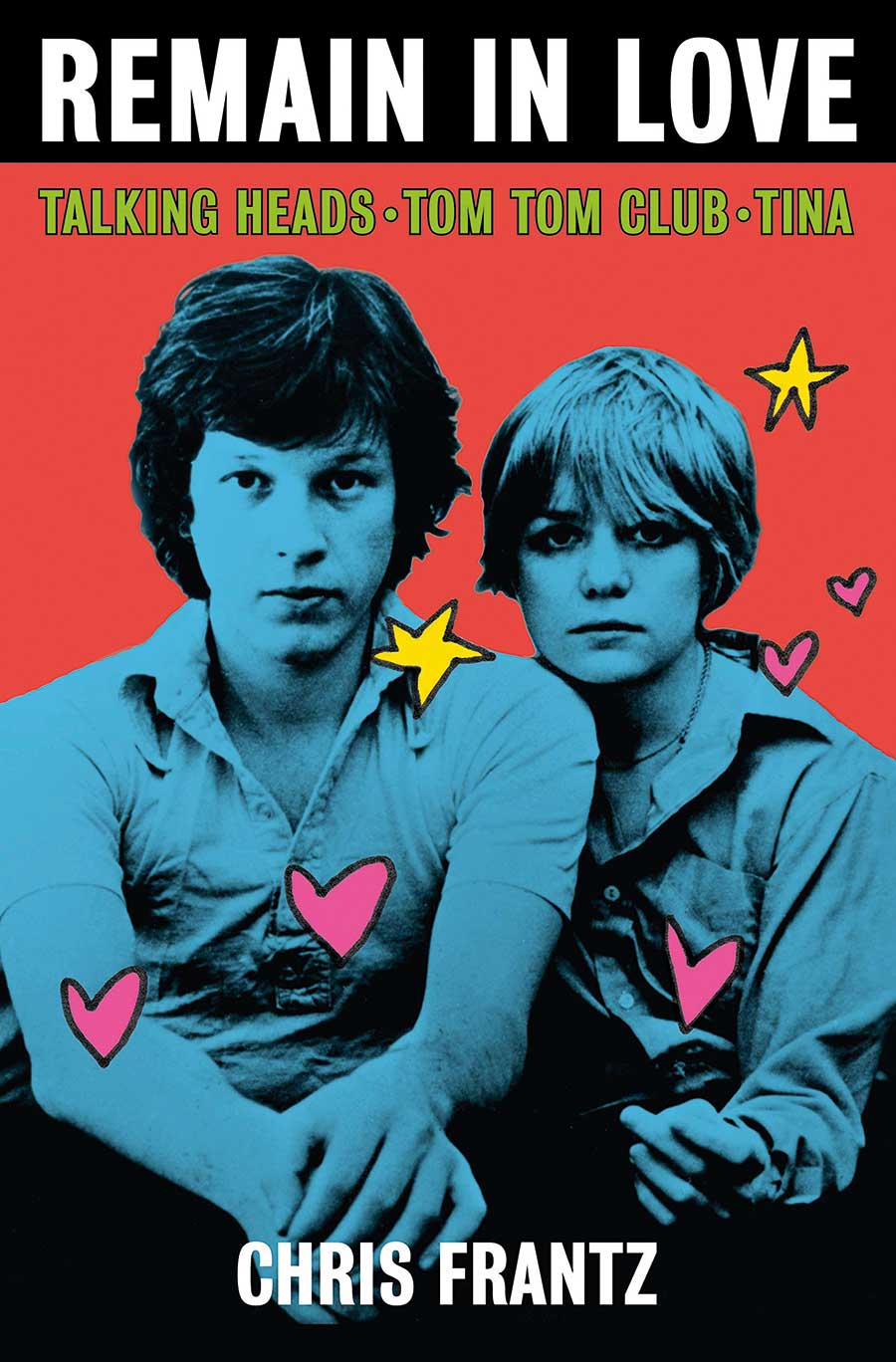 They recorded three rhythm beds, of drums, bass and additional percussion. The very first song to emerge was Wordy Rappinghood. Chris Blackwell was in the studio next door at Compass Point, producing Grace Jones’ Nightclubbing album.
They recorded three rhythm beds, of drums, bass and additional percussion. The very first song to emerge was Wordy Rappinghood. Chris Blackwell was in the studio next door at Compass Point, producing Grace Jones’ Nightclubbing album.
Chris remembers: “We said to Chris: ‘Can you come and hear this, tell us if you like it or not?’ Chris listened to a very rough mix of Wordy Rappinghood and said: ‘Play that again!’ He had a huge grin and said: ‘I’m going to release this as soon as possible.’”
- Read more: The Lowdown – Peter Gabriel
Within weeks, Wordy Rappinghood was at No.7 in the UK. According to Tina: “Tom Tom Club’s success was its own karmic reward. The band was a very inclusive idea, which paid off. Once Chris and I had those rhythm parts, we thought: ‘Right, now let’s bring in our friends.’
“When we made Wordy Rappinghood, I thought: ‘Gosh, now we need to get some words together,’ which is how the line ‘What are words worth?’ came.
“The first people I wanted on board were my sisters, Laura and Lani. We started singing an old schoolyard chant Lani remembered as a five-year-old. That was just a lark, to test everyone on how they’d react, but Chris and everyone loved it. That positivity carried on throughout Tom Tom Club.”
They wanted Talking Heads live guitarist Adrian Belew as singer. He instead joined King Crimson, but found time to play guitar on Tom Tom Club’s revolutionary self-titled debut album.
Follow-up single Genius Of Love is one of the most sampled songs in hip-hop history, notably on Grandmaster Flash’s It’s Nasty, Mark Morrison’s Return Of The Mack and Fantasy by Mariah Carey.
“I loved rap from the start, Chris even more so,” remembers Tina. “When I heard people playing Genius Of Love on boomboxes, there was nothing more exciting. We loved being a tiny little part of the rap community.”
Tom Tom Club’s last album, Downtown Rockers, was back in 2012. There’s a minor domestic over the collective’s future, as Frantz reveals: “We’ve been waiting to have maintenance done on our studio for a year. But we are going
to do some more recording, and that maybe will come out as Tom Tom Club.”
Tina: “No.” Chris: “OK, Tina says no.” Weymouth: “Tom Tom Club was fantastic, but the wonderful band we had, everybody has their life cut out for them now. We’ll make something, but we don’t know what it’s going to be.”
At least Chris and Tina’s musical future is more promising than Talking Heads. The couple regret how that band ended, blaming EMI – who took over Sire around 1985’s Little Creatures – for their messy farewell.
“Contractual obligations made it complicated,” explains Weymouth. “The Police split amicably, and Talking Heads should have been like that. David said: ‘Honour the contracts and we’re done.’ Then he walked out and told everyone: ‘I’ll be back in a year.’
“We got sued by EMI and it caused so many problems. We all fought them, because we wanted to protect Talking Heads’ legacy, but it was another five years to get through that.”
Frantz says: “We get a lot of comments of: ‘Isn’t it terrible you can’t get along?’ But when we were together, we always got along fine. One person didn’t want to work with the rest of us anymore. That’s his choice, and one we can’t really do anything about.”
Tina offers the best summary of Talking Heads’ relationships, via Steve Lillywhite, producer of their final album, Naked. “In the words of Steve Lillywhite? ‘It’s just silly.’ He’s a wise man, Steve.”
Talking Heads may be in a ‘silly’ place, but they were magical for more than a decade. Tom Tom Club were an influential beacon of positivity. And now 50 years later, Chris Frantz and Tina Weymouth are still laughing, remaining in love. There’s nothing silly about that.
- Want more from Classic Pop magazine? Get a free digital issue when you sign up to our newsletter!


